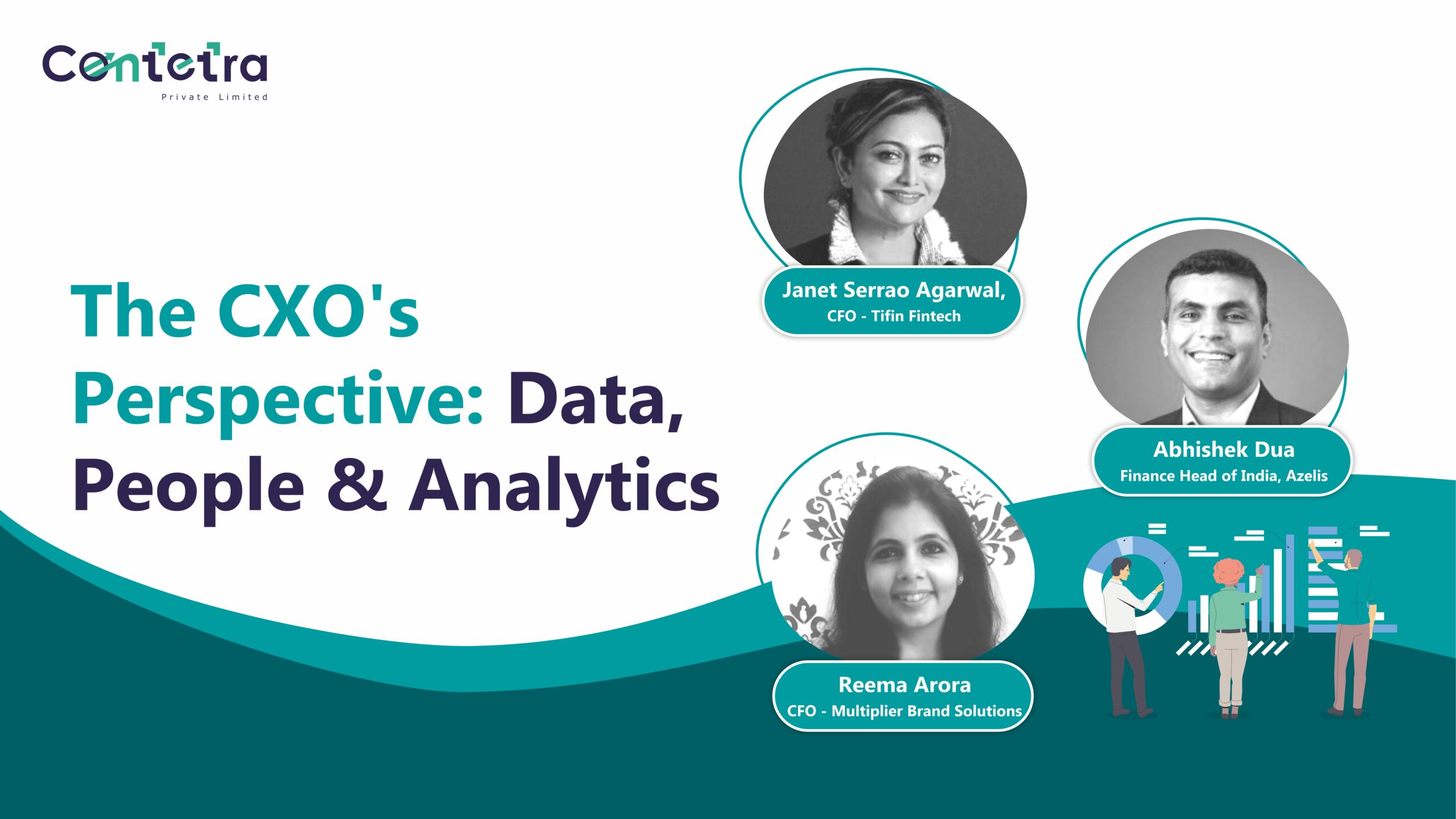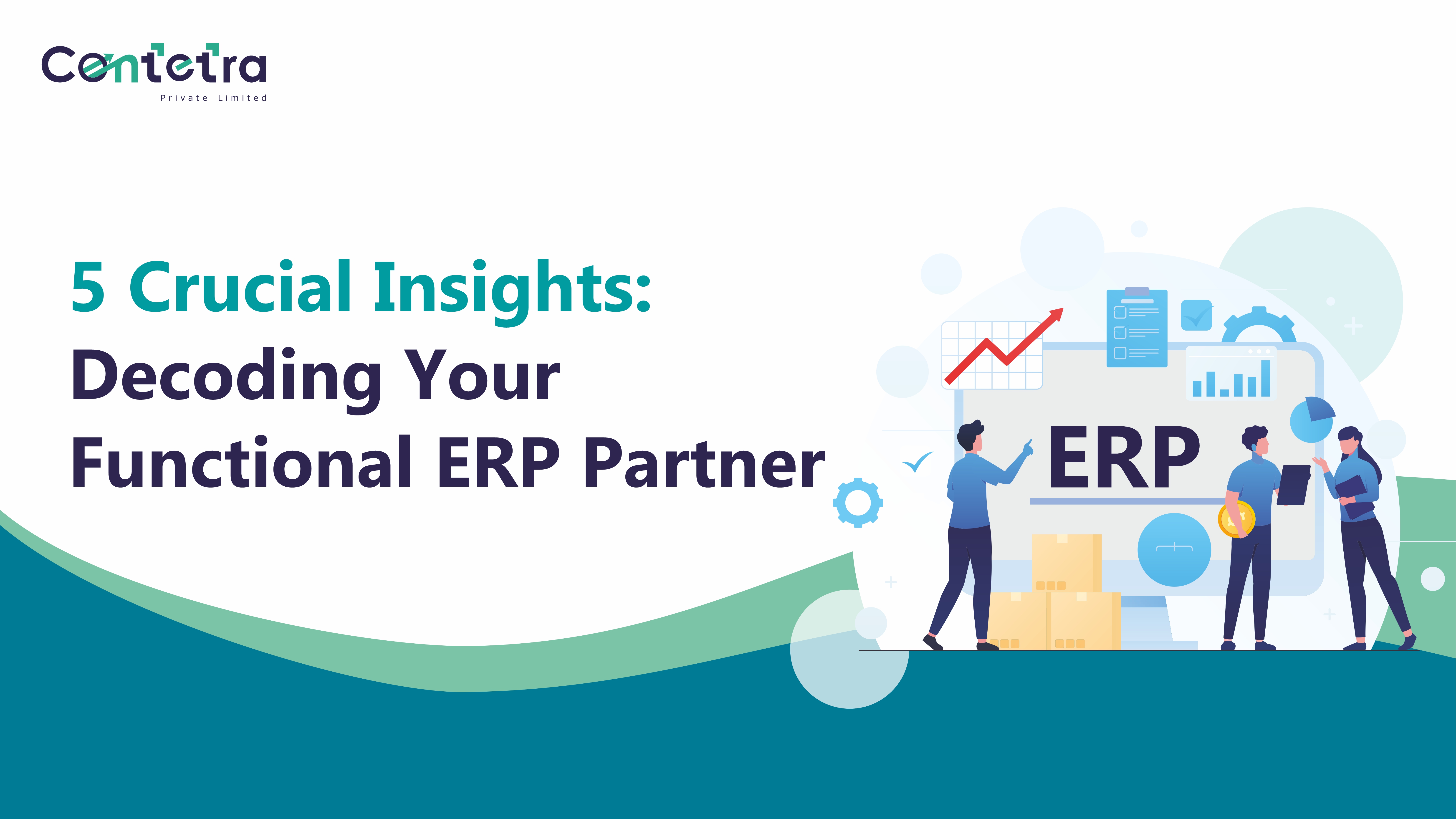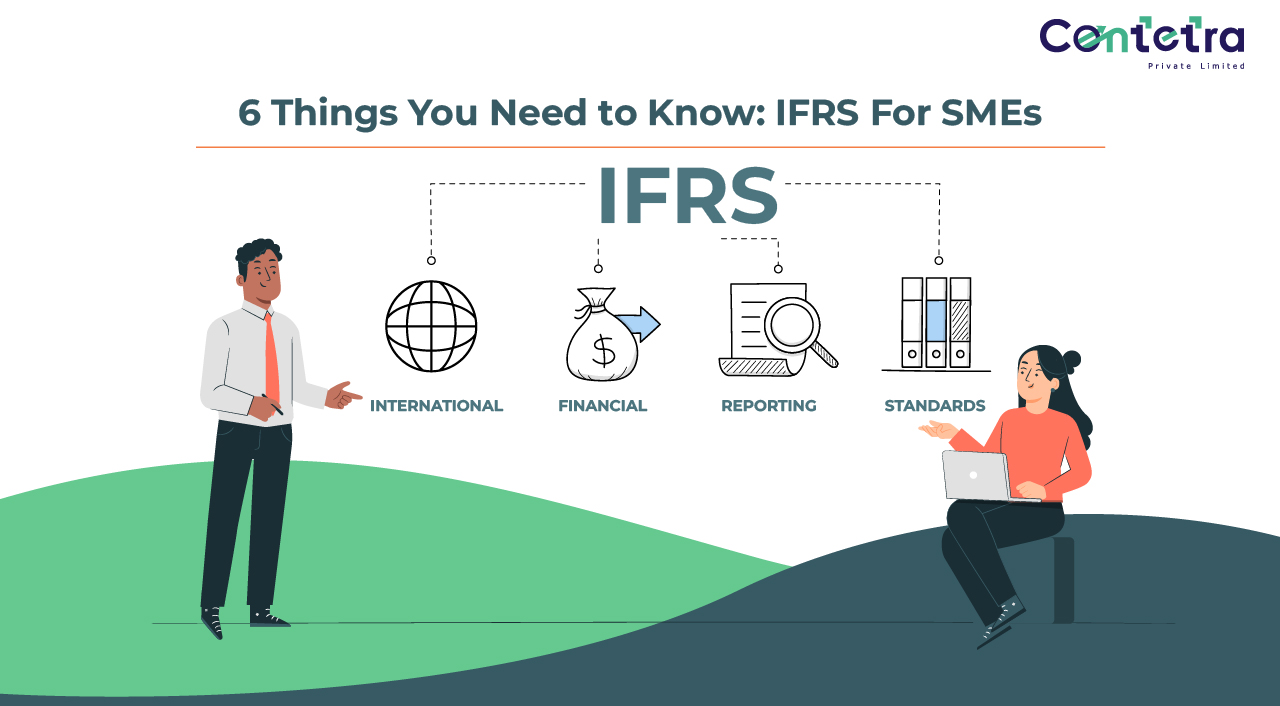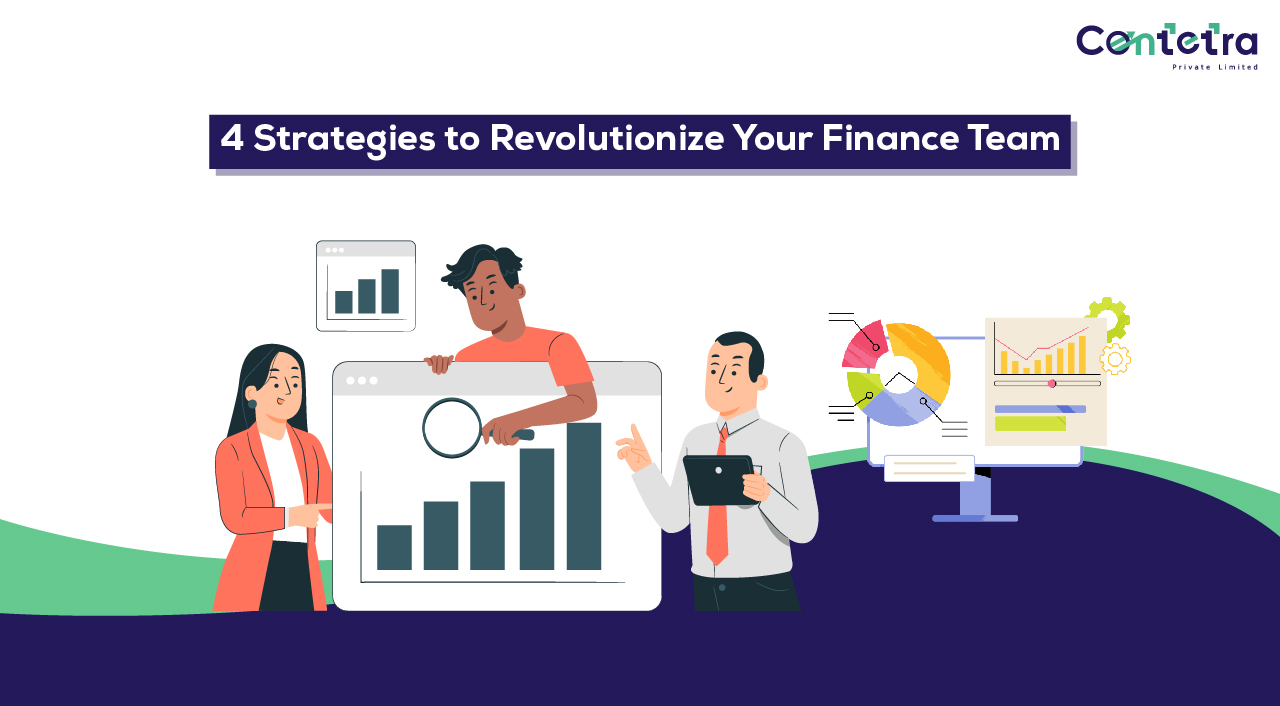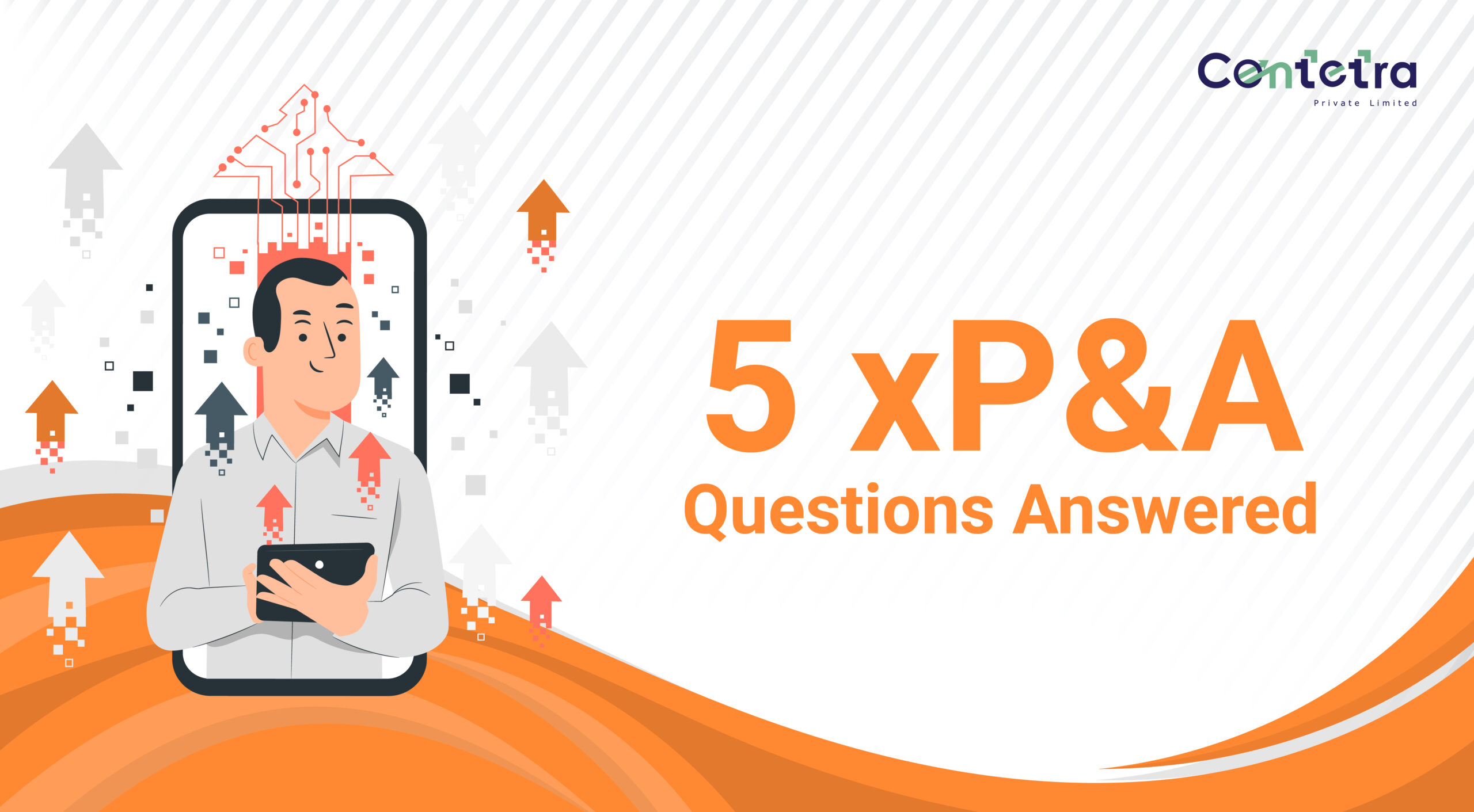When the world went into lockdown in March 2020, around 334 million companies worldwide had to make their operations virtual overnight. At this tumultuous time, the C-Suite had only two choices to survive – either innovate or shut down.
But here’s the catch – it’s not just about adopting tech for the sake of it. CFOs face a bunch of challenges as they steer the ship toward digital transformation. It’s a bit like plotting a course through uncharted waters, but with the right moves, they’re set to navigate these challenges and come out on top.
3D – Data, Demand and Deals
In 2006, a British mathematician Clive Humby coined the phrase, “Data is the new oil.” Today, there are more than 64 zettabytes of data available on the planet. And it would take around 181 million years just to download it on your wifi. So, the major question arises, what part of big data can be used for your organisation and how?
Too much information kills the information. Although big data is a blessing for us, smart data or intelligent data becomes paramount in navigating the colossal sea of information. Smart Data involves selecting and processing data at the source, ensuring authenticity and striving for profitability (value).
Smart Data helps you better understand your customer’s needs and ultimately contributes to customer acquisition and retention. It excels in customer segmentation, profiling, and relevance scoring. This empowers targeted advertising campaigns, leveraging machine learning and CRM for personalized customer experiences. It’s the bedrock of data-driven marketing, optimizing acquisition, and loyalty costs.
Cloud Accounting: Analytics and Reporting
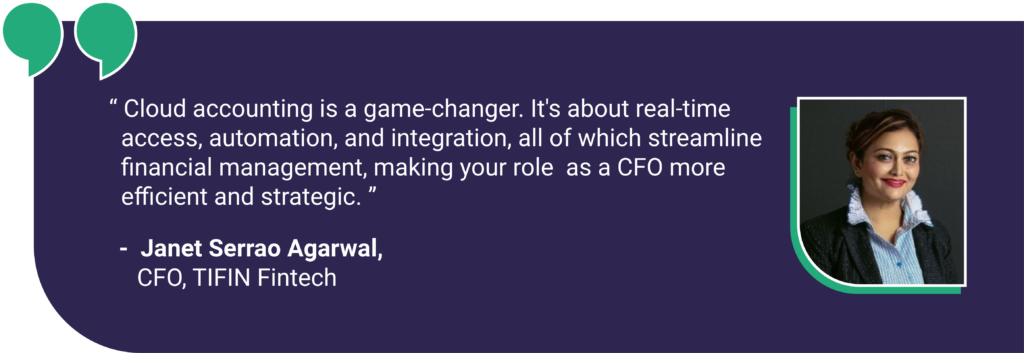
There is one more emerging trend in the world of Analytics and Reporting: Cloud Accounting. A bunch of apps and platforms are doing a phenomenal job of inculcating the concept of accounting with a simple interface.
For more insights on the topic, we reached out to Janet Serrao Agarwal, CFO of TIFIN Fintech. She’s a dynamic finance leader, having varied experience across industries (even being ex-IHCL). Having seen both – agile workflows, as well as extremely detailed enterprise structures, Janet said, “Cloud is a massive trend in the US, Australia, and Europe, with more than 35% of businesses using cloud accounting software. The immediacy through the cloud allows for up-to-the-minute financial reports, making it easier to track cash flow, monitor budgets, and make informed decisions quickly.
Cloud accounting is a game-changer. It’s about real-time access, automation, and integration, all of which streamline financial management, making your role as a CFO more efficient and strategic. The future is in the cloud, and it’s an exciting time to be part of this digital transformation.”
The Overwhelming Cost of Growth
Data-driven companies are 23 times more likely to attract new customers and 6 times more likely to retain them, according to McKinsey. Enhanced profitability, productivity, and internal organization follow suit, with potential operating margin increases of up to 60%. But still, some companies have a hard time monetising this data with high operations and overhead costs.
Since the pandemic, every organisation is in a race to be efficiently effective. And obviously, the best wins! To achieve this, transformation and automation became a strategic imperative.
Initially, digital transformation involved a complete overhaul of systems—a ‘rip-and-replace’ strategy. However, a contemporary approach involves integrating an “automation layer” atop existing application stacks. This intermediary layer seamlessly connects workers with enterprise systems. This innovative method enables organizations to revamp business processes without the former expenses and risks associated with full-scale replacements.
Integrated FP&A and ERP
Interestingly, this layer of transformation is recently trending with the concept of Integrated FP&A and ERP. Why? It brings together all your financials, planning, operational, and people data, plus a bunch of other business functions. It could be your secret weapon for super-smooth and optimized management across the board 🙂
A company’s core assets are people and financial resources. Optimizing these is crucial for any success, be it mission fulfilment, service provision, or profit generation. With an integrated ERP, you are not just looking at managing these assets; but elevating their potential.
It’s not just about merging financials, planning, and operational data, but about harnessing the synergy of all these elements. Rather than spending time on collating data, your team can spend more time on deriving insights from this collated data and create strategies. It enables finance teams to transcend traditional roles and actively contribute to organizational strategy.
Performance Benchmarking
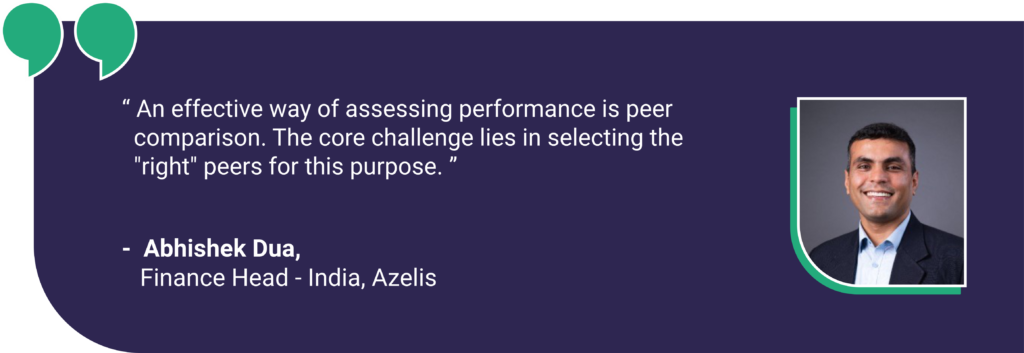
In this rapidly evolving and stimulating landscape, the crucial question arises: how do we accurately gauge the effectiveness of these digital transformations? Are these technological advancements genuinely yielding benefits for organizations? If so, what benchmarks should be established to measure this success, and how can these benchmarks be effectively evaluated?
We asked Abhishek Dua, Finance Head India of Azelis, about his strategy to set performance benchmarks. Abhishek, (CA, CS and CPA Australia) holds a managerial expertise of more than a decade. Abhishek suggested, “An effective way of assessing performance is peer comparison. The core challenge lies in selecting the “right” peers for this purpose. It’s essential to ensure that your company and the chosen peers present similar types of information and hold similar business structures. Peer benchmarking isn’t just an internal tool. All the stakeholders rely on it. They often use financial statements for performance and valuation benchmarking, emphasizing the importance of selecting appropriate peers. For CFOs, it’s vital to pay attention to industry peers.”
Take Walmart as an example. While Amazon and Costco are often considered its peers, the company’s financial statement benchmarks might suggest that Home Depot is a more suitable benchmark, based on the similarity of their financial statements. The positive outcomes of effective benchmarking are clear. Higher FSB scores are linked to better decision-making accuracy and more efficient information processing.
DeFi Security: Data & Finance
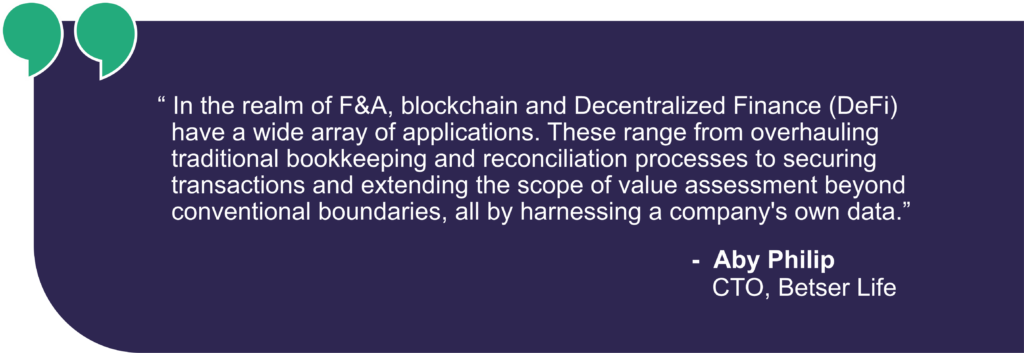
Three decades since the launch of the first website of the internet, we find ourselves at the brink of a fresh epoch of tech-driven transformation. With data generation on a meteoric rise – projected to hit 180 zettabytes by 2025 – alongside the advent of hyper-automation, and the construction of novel online networks and economic infrastructures, CFOs and their teams are poised at a crossroads of immense opportunities and significant challenges.
To have a quick glance in the future of data security, we reached out to the CTO of Betser Life, Aby Phillip. Aby is a graduate of the renowned institute of BITS, Pilani, with an experience spanning the top IT companies of the world. Aby has been a senior IT leader for the past decade. He said, “Decentralized systems will play a pivotal role in facilitating secure, cross-functional cooperation and enhancing operational efficiency. This tamper-resistant technology can operate across a vast network of devices within its ecosystem. Consequently, every operation and financial transaction becomes secure, easily trackable, and verifiable. This reduces risks and equips Finance & Accounting (F&A) teams with immediate, actionable intelligence.
In the realm of F&A, blockchain and Decentralized Finance (DeFi) have a wide array of applications. These range from overhauling traditional bookkeeping and reconciliation processes to securing transactions and extending the scope of value assessment beyond conventional boundaries, all by harnessing a company’s own data. Nonetheless, these innovations also bring new regulatory and legislative complexities that CFOs need to navigate.”
People, Business and Dynamics
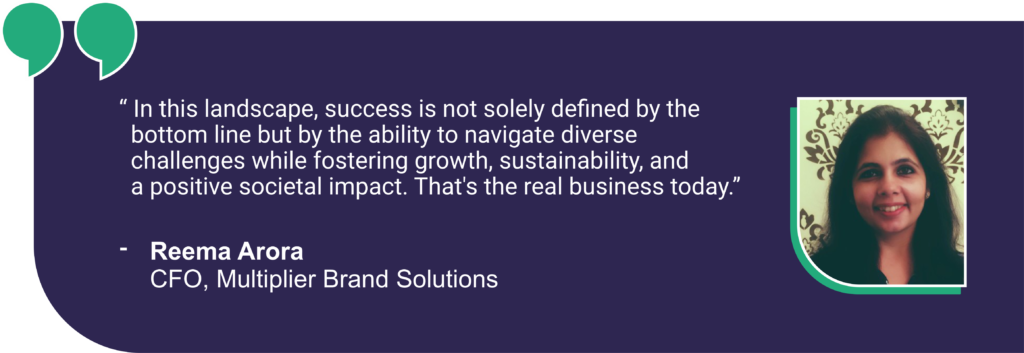
Achieving commercial growth remains a primary goal for CFOs. However, in an era where disruption is almost inevitable, companies are redefining success metrics to encompass values beyond mere financial gains. This shift not only reflects a broader perspective but also aligns with the understanding that non-financial metrics can lead to profitable outcomes.
To get a better take on this, we asked the CFO of a people-first, workforce and data visibility company ~ Multiplier Brand Solutions. Reema Arora, a chartered accountant and industry leader with experience of more than 20 years in marketing and workforce companies, had interesting insights about people and business. She says, “CFOs are compelled to view success through a multi-dimensional lens, acknowledging that sustainable practices, adaptability to disruptions, and awareness of people and culture impacts are integral components of a robust and resilient business strategy. Beyond traditional financial concerns, today’s CFOs face an array of Environmental, Social, and Governance (ESG) challenges that disrupt the notion of business as usual.”
She also highlighted the importance of CFOs anticipating external disruptive events and industry shifts which involves a strategic and collaborative approach. For instance to work closely with HR, legal, and other departments to ensure financial decisions align with the organization’s overall goals and objectives. Continuous monitoring of industry trends and emerging risks is crucial for effective financial leadership in a rapidly evolving workforce landscape.
The role of the Chief Financial Officer (CFO) is becoming increasingly critical. Recent research indicates that 82% of Chief Executive Officers (CEOs) foresee the CFO’s role gaining substantially more importance over the next three to five years. Additionally, 68% of these leaders acknowledge the significant value of CFOs’ strategic insights.
- Want to know more about how you can improve and leverage systems in your organisation?
- Looking for the right partner to help you on your finance transformation journey?
- Need some unbiased opinion on which might be the best system for you? (Yes, we’re platform agnostic!
Look no further!
True to our mission, Contetra works with CFOs and senior finance leaders to enable ROI-driven initiatives that drive their business to new heights.
Set up a non-chargeable call with our solution experts to know how we can be a part of your success story –






